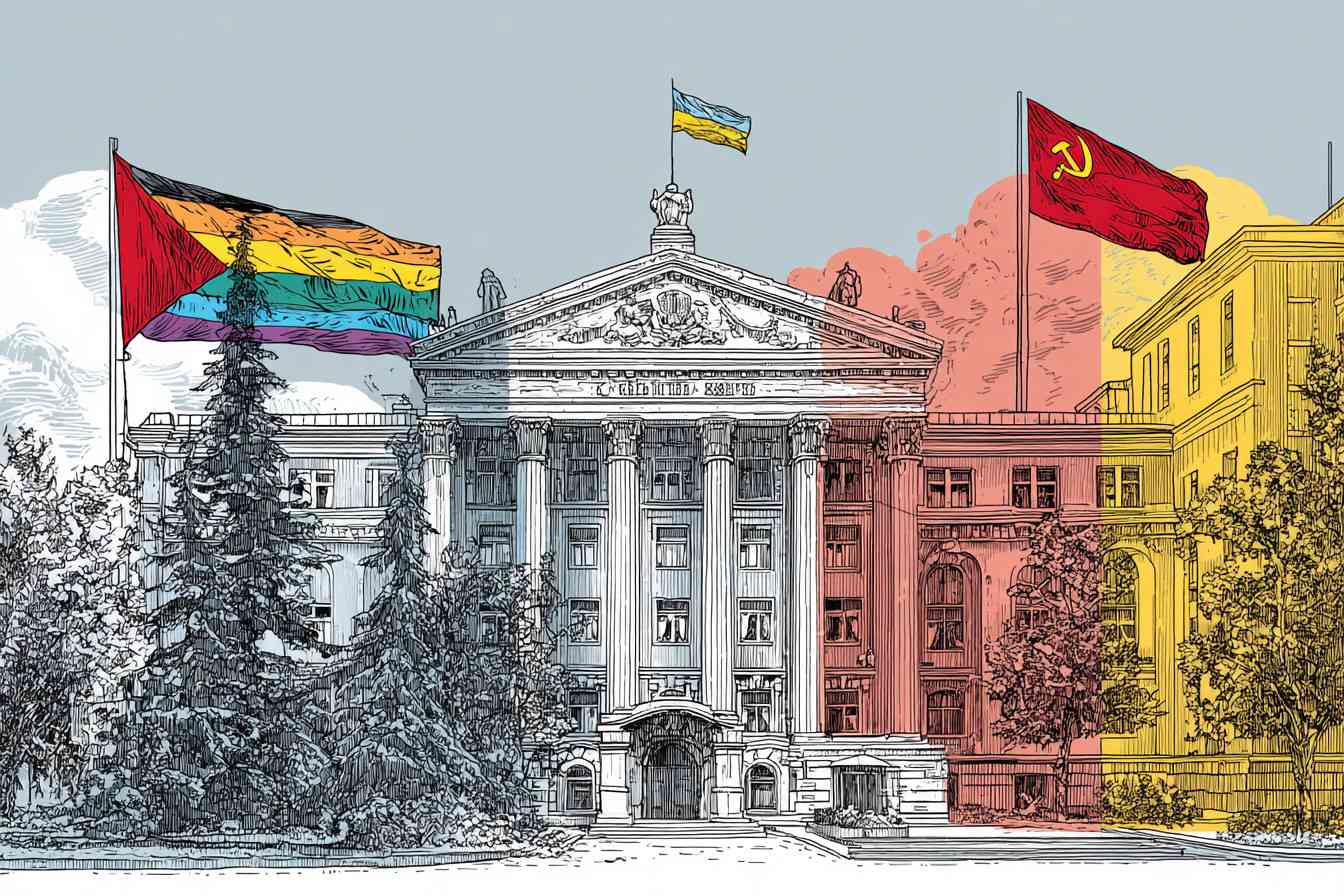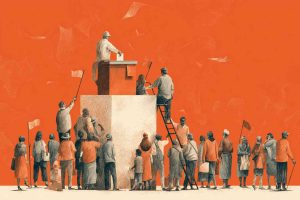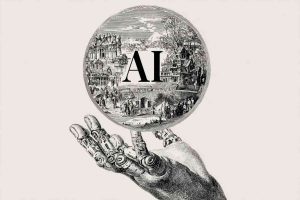Universities as political factories: ideology and indoctrination in modern academia

From open inquiry to political orthodoxy
Universities once presented themselves as sanctuaries of free thought, where debate flourished and diverse perspectives were encouraged. Over the last half-century, however, their mission has shifted. Many institutions of higher education, especially in the West, have moved away from cultivating open inquiry and toward enforcing a political orthodoxy. Rather than training students to question, universities increasingly instruct them in what to think. This shift is not incidental but structural, tied to the rise of ideological dominance in academic life (The Closing of the American Mind, Allan Bloom).
The development is not limited to a handful of elite universities. It can be traced across the United States, Britain, Canada, and much of Europe, where curricula, hiring practices, and campus culture are infused with the same frameworks. What was once a forum for intellectual diversity has become, in many cases, a factory of conformity.
The ideological colonization of academia
The most visible manifestation of ideology in modern academia lies in the social sciences and humanities. In these faculties, the frameworks of critical theory, postmodernism, and identity politics dominate. Literature, history, and sociology courses are often filtered through lenses of race, gender, and power, presented as absolute truths rather than as contested perspectives (Cynical Theories, Helen Pluckrose & James Lindsay).
Students quickly internalize the rules of this intellectual ecosystem. They learn that challenging prevailing ideas risks their grades, reputations, and even their futures. Professors, too, face pressure. In some cases, they have been publicly condemned or dismissed for expressing views outside of ideological orthodoxy (The Tyranny of Merit, Michael Sandel). The result is a culture of silence where dissent is punished and conformity rewarded.
Indoctrination disguised as education
Education should empower students to evaluate competing claims, to build arguments, and to develop resilience against intellectual and moral complexity. Indoctrination, by contrast, discourages questioning and imposes ready-made conclusions. Increasingly, universities seem to prefer the latter. The result is a climate where critical engagement is replaced by slogans, and disagreement is equated with ignorance or hostility (The Coddling of the American Mind, Greg Lukianoff & Jonathan Haidt).
Mechanisms that were introduced under the pretense of compassion reinforce this tendency. “Safe spaces, ” “trigger warnings, ” and speech codes, while advertised as protections, are in practice tools that suppress exposure to alternative perspectives. Shielding students from discomfort robs them of intellectual stamina and diminishes their ability to navigate the complexities of adult life. Instead of preparing graduates to engage the world, universities produce individuals trained to avoid and condemn what they do not like.
The historical roots of ideological dominance
The ideological shift in academia did not appear overnight. Its roots stretch back to the radical movements of the 1960s and 1970s, when universities became battlegrounds for political struggle. Student revolts in Paris, Berkeley, and Berlin embedded the idea that universities should not simply teach knowledge but actively reshape society (May ’68 and Its Afterlives, Kristin Ross). Over time, radical activism merged with academic life, especially in the humanities, transforming curricula and institutional values.
Postmodernist thought, exemplified by figures like Michel Foucault and Jacques Derrida, contributed to this transformation. Their skepticism toward truth, reason, and universal values created fertile ground for identity-based politics to thrive (The Postmodern Condition, Jean-François Lyotard). The consequence is an academic climate where knowledge is seen less as a pursuit of truth than as a tool in political struggles.
Consequences for students and society
The consequences of this ideological capture are profound. Students graduate less with a capacity for independent thought and more with a set of rigid ideological convictions. Many become intolerant of opposing views, mistaking disagreement for moral offense. This fragility spills into the workforce, where employers increasingly report difficulties with graduates who lack resilience and problem-solving skills (Indoctrination U., David Horowitz).
Society at large suffers as well. Universities shape journalists, civil servants, teachers, and policymakers. When these groups emerge from academia with a homogeneous worldview, the wider political and cultural discourse becomes impoverished. Public debates are reduced to moralizing battles, and those who dissent are excluded as illegitimate. In turn, trust in higher education diminishes. Polls show a growing share of the public believes universities are politically biased and fail to prepare students for real life (The Politics of Higher Education, Jeremy Black).
The silencing of dissent
One of the most troubling outcomes of ideological conformity is the silencing of dissent. Professors who challenge prevailing views often face harassment campaigns, petitions, or even dismissal. The rise of “cancel culture” is most visible in academia, where entire departments have sought to ostracize scholars whose work challenges dominant narratives (The Diversity Delusion, Heather Mac Donald).
The silencing does not end with faculty. Students who express unfashionable opinions risk being socially isolated, graded unfairly, or accused of spreading harm. In such an environment, intellectual courage becomes rare. Instead of dialogue, students learn self-censorship. Rather than celebrating diversity of thought, universities cultivate an environment of fear.
A fragile foundation for democracy
Democracy depends on citizens who can engage with multiple perspectives, weigh evidence, and argue without hatred. Universities were once key in forming such citizens. But when academic institutions act as ideological filters, they weaken the very democratic foundation they claim to support.
By narrowing acceptable thought, universities train students to view opponents not as people with different views but as enemies of justice. This undermines the pluralism and tolerance on which democratic societies depend (Illiberal Education, Dinesh D’Souza). A culture that devalues disagreement produces brittle democracies where free speech is tolerated in theory but stifled in practice.
The need for intellectual diversity
If universities are to reclaim their legitimacy, they must restore intellectual diversity. This requires more than inviting occasional guest speakers with different views. It requires a structural rebalancing in hiring, curricula, and institutional culture. Without this, the academy will remain trapped in ideological self-confirmation.
True academic freedom is not about comfort but about exposure to complexity. Students must be taught to confront ideas that unsettle them, not to retreat into echo chambers. Disagreement should be treated as an educational necessity, not a threat. The task of universities is to sharpen minds, not mold them into political instruments (The University We Need, Warren Treadgold).
Reclaiming the university
The problem is not that universities are political but that they are political in only one direction. They must remember their role is not to manufacture activists but to cultivate thinkers. Unless universities commit to pluralism, their social authority will continue to erode, leaving them vulnerable to both public mistrust and irrelevance.
Reclaiming the university does not mean silencing progressive views but situating them in a real marketplace of ideas. Conservative, liberal, socialist, and alternative perspectives should be debated openly, without fear of reprisal. Intellectual resilience must replace ideological fragility.
The stakes are high. Universities shape not just individuals but nations. If they remain dominated by ideology, they will contribute to a more divided, intolerant, and fragile society. But if they return to their true purpose, nurturing independent minds, they can once again serve as engines of discovery, dialogue, and democracy.


















